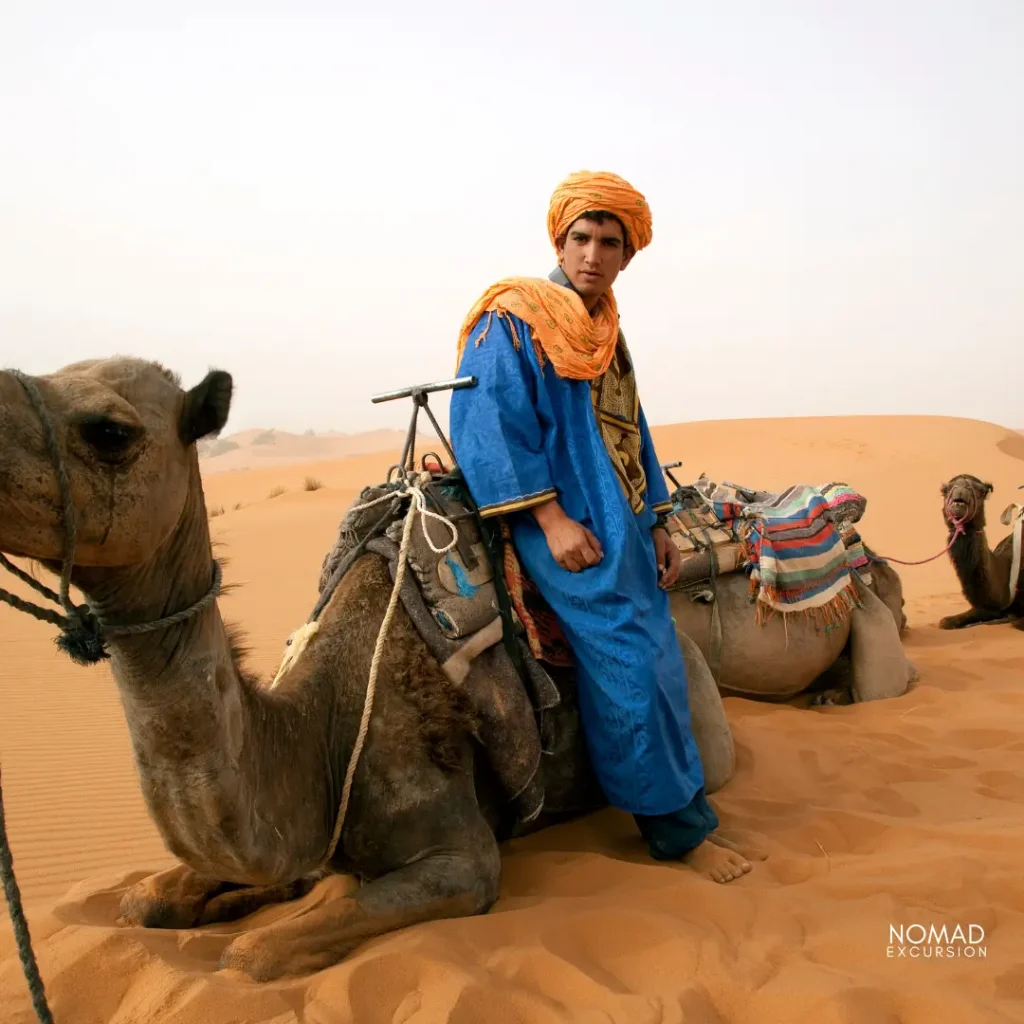Dive into the rich cultural heritage of Merzouga’s nomadic tribes with our detailed exploration. Learn about the traditions, daily activities, and resilient lifestyle of the local nomads. Experience their warm hospitality and gain a deeper understanding of their profound connection to the Sahara Desert.

Exploring the Nomadic Cultures of Merzouga
Merzouga, a gateway to the vast Sahara, is not only famous for its breathtaking landscapes but also for its rich cultural tapestry, particularly the nomadic tribes that have navigated these sands for centuries. These communities offer a fascinating glimpse into a way of life that has sustained itself through deep-rooted traditions and a profound connection to the land.
The Life of Nomads in Merzouga
The nomadic tribes around Merzouga, predominantly Berbers, have adapted to the harsh desert conditions with remarkable resilience and ingenuity. Their lifestyle is a testament to the human capacity to thrive under challenging circumstances. They live primarily in tents and move seasonally to find water and grazing for their livestock, preserving a lifestyle that has been passed down through generations.
Cultural Traditions and Hospitality
Nomadic culture is rich with customs and rituals, many of which revolve around community and hospitality. Visitors often remark on the warmth and welcoming nature of the nomadic people. A common cultural experience for guests includes sharing mint tea—a sign of hospitality and friendship—accompanied by stories and songs that have been a part of the nomadic heritage for ages.
Daily Life and Survival Skills
The daily life of the nomads is closely tied to their environment. Skills such as weaving, cooking traditional meals like tagine over open fires, and the art of falconry are integral to their survival and cultural identity. These skills are not only practical but also carry artistic and cultural significance, each telling a story of the desert and its people.
Interaction with Nomads: Ethical Considerations
When visiting nomadic communities, it’s crucial to approach with respect and sensitivity towards their lifestyle and traditions. Many tour operators in Merzouga facilitate visits that respect the dignity and privacy of the nomads while allowing for cultural exchange and learning. These interactions are opportunities for visitors to enrich their understanding of a unique way of life while contributing positively to the local community.
Conclusion
The nomadic tribes of Merzouga are custodians of a rich cultural heritage that offers invaluable insights into human resilience and adaptability. A visit to these communities is not just about observing but engaging with a culture that stands as a profound example of living in harmony with nature. The cultural insights gained from meeting the local nomads of Merzouga enrich any traveler’s experience, providing deep, personal connections that last a lifetime.
